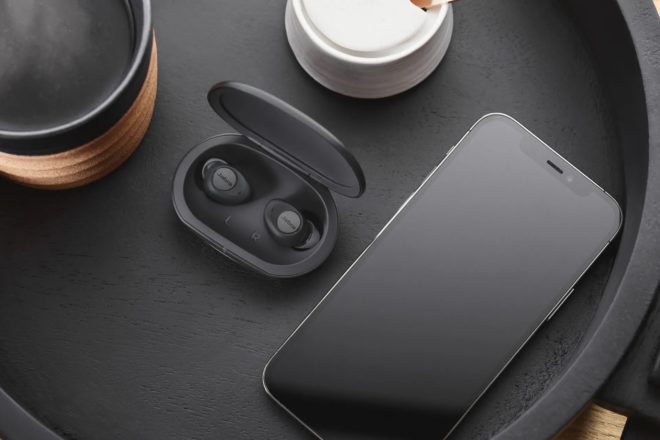Explore New Hearing Aids at Sound Advice Hearing Doctors
Hearing loss can be a frustrating and debilitating experience, especially for those who are experiencing it for the first time. Fortunately, with technological advancements, hearing aids have become a life-changing solution for those experiencing diminished hearing. If this is happening to you or a loved one, chances are you’ve started researching options. In this blog post, we will discuss the essential factors to consider when choosing the best hearing aid for first-time users.
Understanding Your Type of Hearing Loss
Understanding the type of hearing loss you are experiencing is critical when choosing a hearing aid. For this reason, seeing an audiologist for a formal hearing test and evaluation is a must. There isn’t a one-size-fits-all option for first-time users, and even individuals diagnosed with the same form of loss will find they have different needs from one another. A test will reveal the type of loss as well as the severity of it. These evaluations are also a good time to discuss with the audiologist how you’ll use your hearing aid. Will it be used in quiet or noisy places? Is it for work or leisure? From there, you can start to consider other essential factors.
Choosing the Right Style of Hearing Aid
There are a variety of hearing aid styles to choose from, depending on your needs and preferences. Understanding the various categories and the abbreviations often used to describe them will help you on your journey to choosing your first hearing aid. The two main types include behind-the-ear (BTE) and in-the-ear (ITE), and there are subcategories within these. Here’s an overview of each option:
- In-the-Ear – ITE aids include invisible-in-the-canal (IIC), completely-in-canal (CIC), in-the-canal (ITC), and full shell in-the-ear (ITE). All are worn inside the ear at different depths and are appropriate for mild to severe hearing loss. They provide excellent sound quality, and people like that they are more discreet.
- Behind-the-Ear – In this category, you’ll find receiver-in-ear (RIC), mini BTE with slim tube and tip, and BTE with earmold. While these styles are less discreet, they tend to provide better amplification of sound, which can be a big attraction for certain types of hearing issues. Increased battery life is another bonus.
Technology Options in New Hearing Aids
Hearing aids have seen significant advancements in recent years in style and amplification and incorporating modern technology into optional features. Depending on the size of your budget, there are many choices to consider, and each one can significantly improve the overall experience. Highlights of some of the available options include:
- Noise Reduction – Hearing aids can differentiate between speech and background noise to enjoy conversations more clearly. Noise reduction also assists with an aid’s ability to quickly adapt to new, noisier environments.
- Directional Microphones – The sound’s origin can affect how well you hear it. Adaptive directional systems focus on speech no matter the direction. Fixed directional microphones maintain focus on one area. Dynamic systems can fluctuate between the two.
- Bluetooth Connectivity – Bluetooth technology allows wireless connectivity among many different devices at home or work, including hearing aids. With the right technology, TVs, tablets, and smartphones are compatible with Bluetooth hearing aids. Some allow you to change hearing aid settings through an app.
- Rechargeable Batteries – Many styles have eliminated the need to constantly replace dead batteries by incorporating rechargeable systems. This saves money and also eases the troublesome task of handling and replacing very small-sized batteries if dexterity issues are a problem for the user.
Proper Fitting Is Essential to the Experience
A custom-fit hearing aid is required for long-term comfort and efficient functioning. Before settling on a device, ensure it fits comfortably and securely in your ear without causing discomfort. Our audiologists take precise measurements of our clients’ ear canals to ensure that their new hearing aid fits properly and the sound quality is optimized. That might seem like a small detail, but it makes a significant difference for a device you will always use. Comfort is essential to your quality of life.
Ongoing Support and Care After Your Purchase
Purchasing a quality product from a reputable hearing care center like ours is one of the best ways to ensure you have a reliable product and avoid hearing aid problems. Support options from manufacturers and a hearing aid warranty are vital considerations when choosing a device. At home, users will be required to properly maintain and clean their hearing aids occasionally to keep them in optimum working condition and prolong their functionality. Wiping the device with a soft cloth daily will help keep wax and debris from blocking sounds. Some products are waterproof and sweatproof, but those that aren’t should be kept away from moisture and extreme temperatures. Professional cleaning is also available through your audiologist, and the team at Sound Advice Hearing Doctors is available for ongoing support.
Budget Considerations for Hearing Aid Devices
Hearing aids come in various price ranges, and while cost should not come as the first consideration, it is helpful to have an idea of how much you want to spend when doing your research. Since hearing aids significantly improve quality of life and mental health, your budget should not inhibit you from getting a device with the required functionality, quality, and features that enable you to hear and be part of the conversation. Fortunately, setting a realistic budget does not mean you have to sacrifice quality and comfort. If your price range is on the low end, it may mean you don’t invest in some of the modern technology that won’t affect the device’s ability to amplify sound. Entry-level hearing aids offer some significant savings, and you can always upgrade when shopping for new hearing aids.
Visit Us for Help to Find the Right Hearing Aid for You
Choosing the best hearing aid for first-time users can be a daunting task, with various types, features, and styles available. The professionals at Sound Advice Hearing Doctors in MO, AR, and OK are here to offer knowledgeable assistance when getting your first device or shopping for a hearing aid replacement. Understanding your needs, hearing loss type, and preferences is crucial to selecting the right hearing aid. With this guide, you can narrow your search to find a device to improve your hearing and quality of life. Always consult with a qualified and experienced audiologist before purchasing a hearing aid. Find one of our hearing care center locations near you and visit us for assistance.



